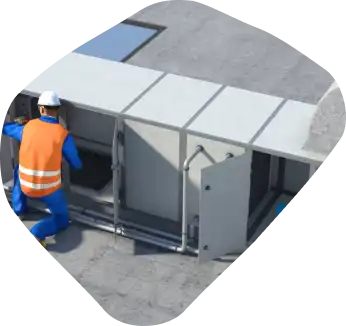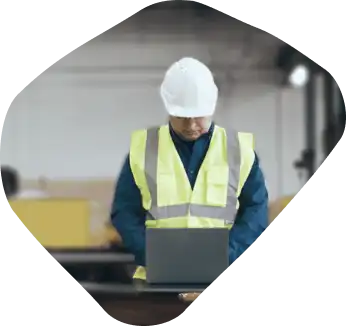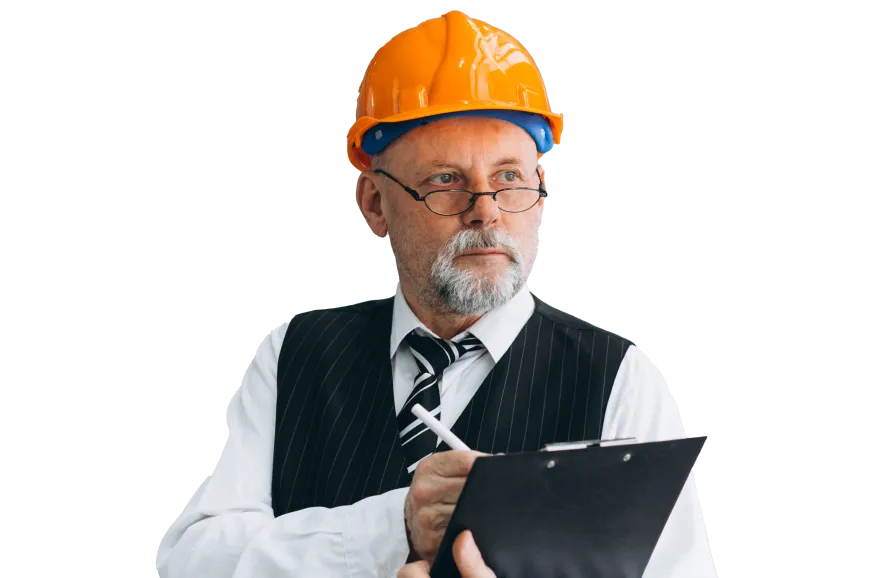February 22, 2024 6 min read

7 Facility Management Training Tips
Industry:
Solution:

The role of facility management training is becoming increasingly pivotal. But as skills gaps widen and the shortage of labor increases, companies will need to focus their efforts to ensure they maintain a well-trained (and cross-trained) workforce. In this blog, we’ll talk about what kind of FM training matters and seven practical tips to create an effective training program.
What is Facility Management Training?
Facility management training is a strategic and systematic approach to equipping individuals within an organization with the knowledge, skills, and competencies necessary to excel in the multifaceted field of facility management. This specialized training goes beyond the traditional onboarding processes, offering targeted programs designed to enhance the capabilities of teams responsible for maintaining and operating the built environment.
This training program should include:
- Building foundational knowledge
- Teaching technical skills
- Reinforcing safety best practices
- Educating employees on technological advancements in the industry
- Training on soft skills like communication and teamwork
The Role of Training in Organizational Success
Facility management training plays a pivotal role in elevating organizational success. It empowers teams to operate with precision, adapt to industry changes, and contribute to the overall efficiency of an organization. By investing in continuous learning and skill development, businesses ensure that their facility management teams are not just adequately trained but are catalysts for growth and excellence.
What Are Key Facilities Management Training Topics?
There are numerous areas of study that are important for facilities teams. But it’s important to distinguish the difference between facilities maintenance training and facility management training.
Key maintenance topics include things like:
- HVAC
- Electrical Theory
- Fire Systems
- Electric Motors
- Heat Exchangers
- Cooling
- Boilers
- Plumbing
- Electrical Power Systems
- Refrigeration
But the management of facilities requires training, including:
- Work order management
- Building Automation Systems (BAS)
- Professional Development
- Project Management
- Maintenance Management
- Asset Management
- Contracts
- HR compliance
- And more!
To learn more about the eLearning courses that Vector Solutions has available, download the free course catalog below:
Industrial Facility Management and Maintenance Training Library
Vector Solutions’ online industrial facilities training can help your workforce reduce risks, close skill gaps, reduce operations and maintenance costs, all while increasing safety and productivity.
Download Library
7 Tips to Improve Your Facility Management Training
Ready to get started? These seven steps will help you create a training strategy that gets results.
1. Identify Skills Gaps
Before designing your training program, conduct Competency Assessments to identify existing skill gaps within your facility management team. Then tailor your training to address these specific gaps, ensuring that your program directly targets areas in need of improvement.
2. Customize Training for Diverse Roles
There are a wide range of roles within facility management and employees of different seniority levels also require different training. It’s important to customize the training you assign to ensure employees are learning what they need to thrive in their role and grow in their career.
3. Embrace Blended Learning Methods
Incorporate a variety of learning methods to accommodate different learning styles. Blend traditional classroom training with eLearning modules, hands-on workshops, and simulations. This diversified approach ensures that your team engages with the material in ways that resonate with them, leading to better retention and application of knowledge.
The Blended Learning Solutions Guide
Learn strategies for developing effective blended learning solutions that increase knowledge retention, skill development, and job performance.
Download Guide
4. Provide Opportunities for Practical Application of Knowledge
Learning by doing is a powerful method for skill development. Integrate practical, hands-on components into your training program. Providing opportunities for practical application reinforces theoretical knowledge and enhances skill proficiency.
For example, after using eLearning to train employees on the knowledge they need, reinforce that with in-person applications. A great way to do this is to pair a junior employee with a senior employee who can mentor them and guide them through applying their knowledge first-hand.
5. Encourage Continuous Learning
Facilities management is a dynamic field with evolving technologies and best practices. Encourage a culture of continuous learning by providing access to ongoing training opportunities and learning paths. This ensures that your team remains at the forefront of industry trends and adapts to changing demands.
6. Use a Learning Management System
Using a Learning Management Systems (LMS) built for your industry ensures efficient and accessible training delivery. These tools come with a variety of great features that streamline assigning training, reporting on results, and assessing gaps in knowledge.
7. Measure and Adjust Your Training Approach
Implement a robust system for measuring the effectiveness of your training program (like an LMS!). Track key performance indicators, gather feedback from participants, and analyze results to identify areas for improvement. Use this data-driven approach to adjust and refine your training initiatives, ensuring continuous enhancement of your facility management team’s skills.

The Benefits of FM Training: Better Workplace Culture
Improving workplace culture is crucial for nurturing employee satisfaction, retention, and organizational success. Facilities management training programs are a critical part in shaping and fortifying a positive culture. Employers can help drive a positive workplace culture in their facilities management training through:
- Values and Beliefs: Facilities management training instills organizational values and beliefs that champion respect, collaboration, and inclusivity among employees. By harmonizing training initiatives with the company’s core values, organizations cultivate a shared sense of purpose and identity.
- Communication and Transparency: Effective communication stands as a cornerstone in establishing a transparent and open work environment where employees feel valued and heard. Facilities management training underscores communication skills, conflict resolution techniques, and strategies for nurturing trust and transparency among team members.
- Continuous Improvement: Facilities management training underscores the value of continuous improvement and learning within the organization. By fostering a culture of continuous learning and development, organizations empower employees to refine their skills, adapt to change, and contribute to organizational growth and success.
By incorporating these elements into facilities management training programs, organizations proactively nurture a positive workplace culture that amplifies employee satisfaction, engagement, and overall performance.
Facilities Maintenance Training Plan Guide
This user-friendly learning path template takes the guesswork out of designing your training program by providing pre-selected courses from Vector’s extensive training catalog, Facilities Management, and Maintenance Library.
Download Guide
Why Facilities Management Companies Choose Vector Solutions eLearning
A well-crafted training program is a catalyst for success. Facilities Management companies partner with Vector Solutions for a variety of reasons.
Close Skills Gaps
91% of facilities managers say there’s “a gap between the knowledge and skills their team has and what they need to excel” and 72% of FM managers report that they “have had difficulty finding job applicants with the right technical and/or managerial skills (Professional Facilities Management Institute). Learn more in this guide to closing FM skills gaps!
Certification Management
“The certifications promote career growth and skill development because the different levels of certification demonstrate to a manager the employee has a specific skill set and a commitment to growth.” — Technical Workforce Development Program Manager, Global FM Company
Employee Safety
“LiveSafe really saved us in D.C. during the inauguration. We were getting so many tips that we were able to deploy our security officers to the next area where the protesters would be. We’re one of the few companies in all of D.C. that experienced zero property damage that day.” — Director of Security, Brookfield Properties








